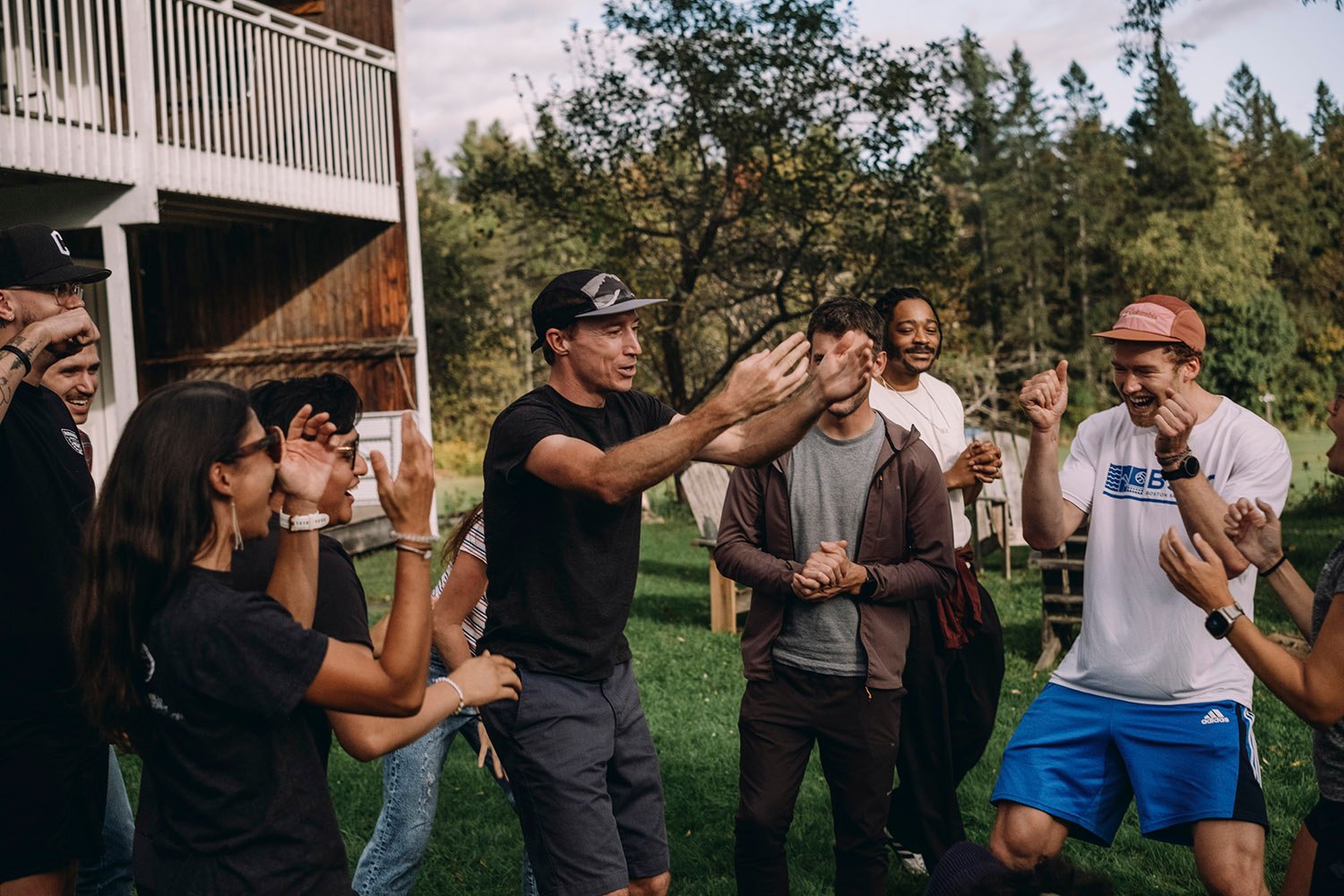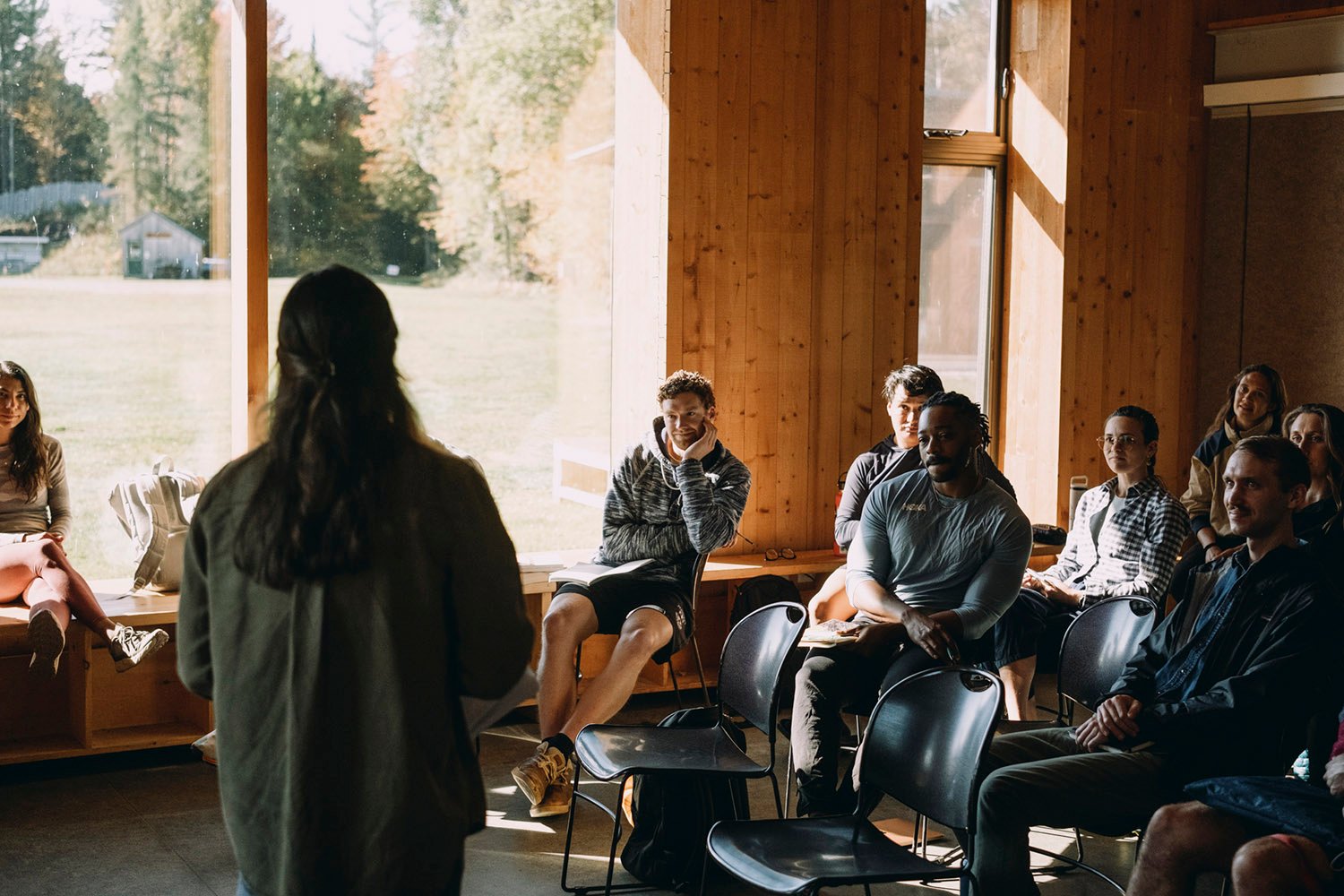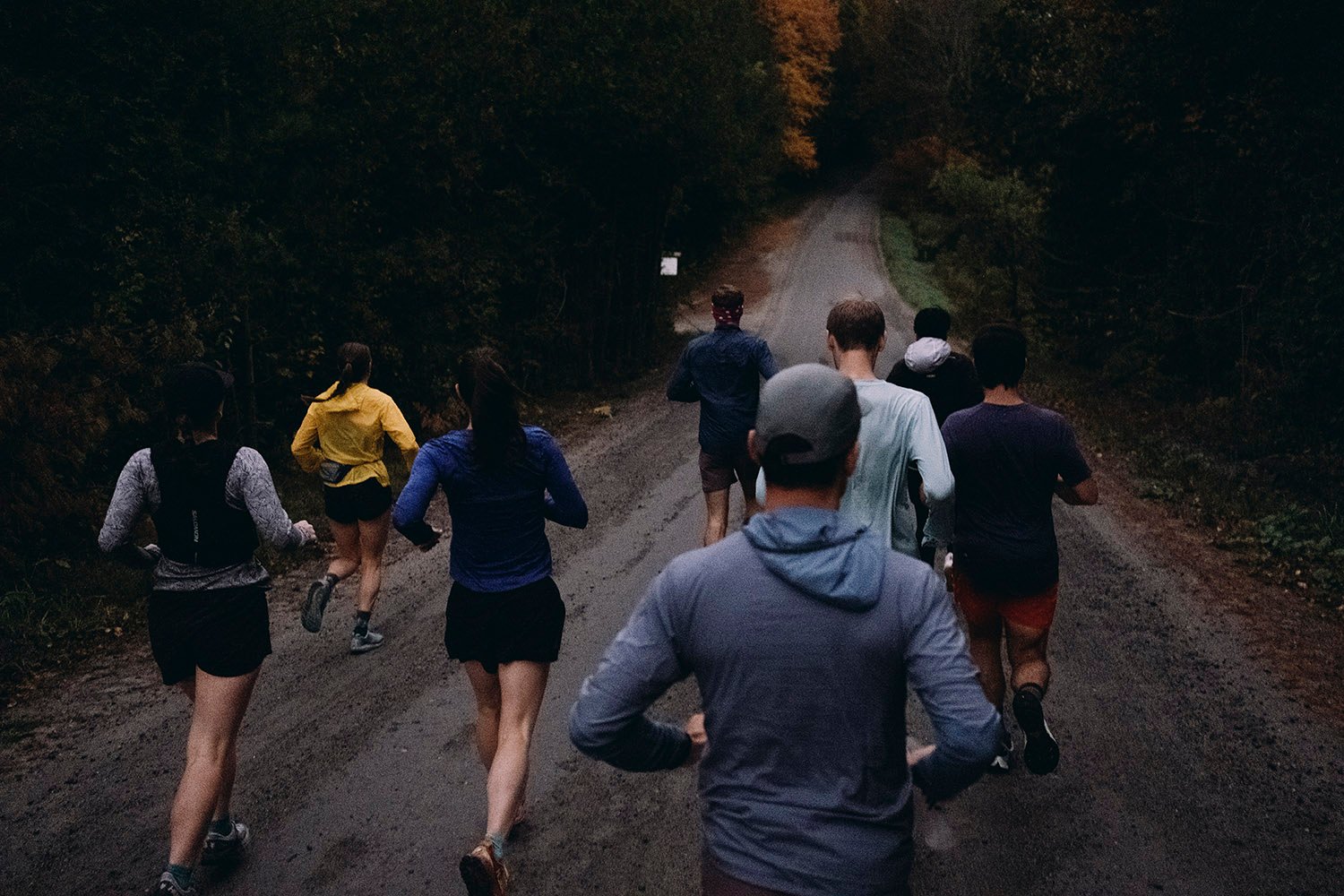Article by Dakota Jones
One of the best things about running is that you can do it almost anywhere. As long as you have some shoes and a few clothes, you can go for a run wherever you are. (And hey – you don’t even really need that stuff, depending on the context.) Trail running was born out of this desire to embrace the experience of running and its simplicity. But this pursuit is at risk due to climate change, which is impacting not only our ability to run but the general human ability to continue to use natural resources for life, health, and prosperity. It’s a big bad scary thing and I spent too much time worrying about it and not enough time trying to do something. In 2021, I decided to change that.

I am Dakota Jones, a professional trail runner from Utah who has been running competitively for 15 years. I’ve also been trying to use my platform to address environmental issues for a long time. In 2016 I took a cargo ship across the Atlantic to race in Europe instead of flying. And In 2018, I rode my bike from where I was living in Silverton, Colorado to the Pikes Peak Marathon. Then I ran the race, and the following week I biked home.
Both of these trips were exciting adventures, and on paper they saved resources. But the problem was that neither of them was repeatable on a large scale People with jobs and families simply can’t take the time and money to travel by cargo ship or bicycle. These actions may not be the overall solution to climate change, but they had been effective actions for me personally, because I had a public platform as a professional runner. The question was: how could I help people create their own similar projects that made the best use of their own skills and circumstances?
A space for runners to drive impact
Footprints Running camp came out of that thought process, and out of the many conversations I had with smarter friends over the next few years. The basic ideas can be summed up as follows:
- Running helps people be healthy and it brings them together
- Running as a sport is a privileged thing to do, which implies you have the time and energy to attend to more than your basic needs
- Many runners want to address social and environmental issues but don’t know how
We put these three ideas together and created a running camp that a) brought people together in person, b) centered the messaging of the camp around community service, and c) provided education and mentorship for environmental action. The key was that we don’t just want to raise awareness about problems, we want to create direct actions. And since we’re not all senators or the leaders of large corporations, we shouldn’t be expected to create global changes. Instead, each participant at Footprints arrives with an idea for how they want to address climate change in their community. During the camp, our mentors help campers bring these projects to life.

Transforming ideas into local impact
Abbie Sullivan is from Canandaigua, New York, a small town on a beautiful lake. During the last few years the lake has experienced periodic algae blooms, which is when fertilizer from outlying farms pours into the lake and consumes all the oxygen in the upper waters, making it toxic. Abbie had studied the issue during her engineering degree, but she didn’t know how to bring about action on the issue.
Her mentor was Dr. Ryan McClure, a climate scientist (and ultrarunner) from Colorado. Together they worked to develop a race in Canandaigua that brought the community together around the issue. First they identified an action to take: they partnered with a local nonprofit working on the lake’s water quality. Next, they reached out to local businesses and created a festival to partner the race. The event became an opportunity for people from all over the region to come to Canandaigua for the race and to get to know the community. Local businesses benefitted, and the runners got to race down the town’s main street. In this way, Abbie and Dr. McClure turned an environmental problem into an economic solution: now the town can see the benefit of cleaning up the lake, and they have a clear partner (the race and the local nonprofit) to whom they can turn for help.
Abbie’s project is one of more than two dozen that we have helped develop during the past three years of Footprints camps. If you want to read more, check out our website here. This fall, our fourth camp took place in northern Vermont, and we were proud to expand both our scope of education and our network of partners. During the last year we have adjusted our mission to focus on climate justice rather than simply climate change, with the aim of prioritizing the people most affected by climate change to help reduce the impacts they feel and assist them to be more prepared.

In addition, we’re thrilled to partner with Suunto! Suunto is a watch manufacturer from Finland that has been operating for more than 80 years. They began by making compasses, and now they make state of the art smart watches that allow athletes and adventurers to travel to the most remote parts of the globe without ever being lost. Suunto supports environmental activism within their own brand and externally, by providing funds and products to organizations like Footprints. We’re thrilled to share this new adventure with them and excited to tell the tale.
If you want to get involved with Footprints, take a look at our website and follow along on social media. We’ve found that when people have the support they need, they can do amazing things. As a nonprofit with a large and growing network of mentors and collaborators across many professional fields, we are excited to organize more camps and create more opportunities for people like you. What kind of project would you like to work on at camp? Reach out and tell us now!
Images by Ryan Thrower & Freetrail